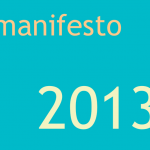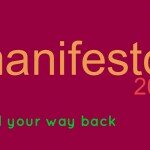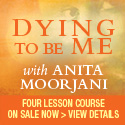The first welfare office I ever stepped in was in this one-story dark brown office building that was on the curve of a road that made it seem even more remote than it was. It was unmarked and so drab looking that it made me wonder if, in brighter daylight, it would somehow look more cheerful. Nothing about it seemed as if it had ever been cheerful before so I doubted very much it could improve. To this day, I don’t know what other kinds of offices were in there. Maybe realtor offices or tax preparation. It was dank, depressing, and hard to like no matter what kind of tacky wallpaper they tried to put up to enhance it. The building was as hopeless as the people in it, welfare recipients and all.
The summer between my freshman and sophomore year was longer than most. I gave birth to my baby in May and didn’t finish out the last couple of days of school. Instead, I stayed home and learned to put cloth diapers on her without sticking her with the pins. Nursing just seemed to make sense to my still-young-and-developing body and Mallory and I figured it out together. For the first time I started to wear a nursing bra with pads that ended up being coasters to my unsuspecting friends who came to visit. Well, to the few of them that did. It’s difficult to hang out with someone like who has a sleeping baby who might wake at any moment. By the time school resumed in the fall I had a 3-month old and was filled with doubt. My teachers didn’t improve that situation, either, as the most common phrase followed the clucking of their tongues and the shaking of their heads was, “All your dreams. Gone.”
For a while, they convinced me. The lady at the welfare office helped.
Why are you here?
To sign up for food stamps and help for child care. Didn’t she know that when I walked in with a baby wrapped around me?
The father? Where is he?
Gone.
Out of the room gone? Didn’t he come in with you?
No, he’s gone. His family sold their house and they moved out of state. I don’t know where he is. The words ‘forwarding address’ didn’t come to my mouth. My mouth just remained empty after I answered each of her questions, getting ready for the next round of questions.
Tongue clucking. Head shaking. Loads of shame. Little did I know I was in for at least a decade more of what she was serving me.

She waited a while before speaking again. She shot forth a million insignificant questions each followed by her disapproving eyes looking up at me for the answer. It’s a look she must have practiced constantly. The waiting room was filled with poor people who were all trying to get help. People with equally poor vocabularies that, unbeknownst to me, would be the very vocabularies I would spend a lifetime avoiding. At the time it didn’t occur to me that I was poor. I stopped saying that I needed “help” because it brought the wrath from people who saw me and my misspent youth as a failure. Instead, I used the words “financial assistance” to sound smarter than I was. I was not, though I wanted to be, smart.
My parents were middle class workers who owned their own businesses in the 80s. Reaganomics was good to us and once we moved out of the city to the suburbs we thought we’d made it. Once, for my 10th birthday, I got a stereo system with my first record player. My parents, not knowing what album to get me to accompany the gift, bought me Foreigner. I hated Foreigner. There was a check inside my birthday card for $400 and I cashed it to get a pair of Jordache jeans, a pair of Gloria Vanderbilt jeans, and Michael Jackson’s “Off the Wall” album. I played that over and over while staring at the picture of Michael on the unfolded album cover. It folded out into three pieces of cardboard that I displayed on the floor in front of my stereo.
___________________________________________
It was a hot and sticky August morning when I woke up and packed up the station wagon that belonged to me with everything else I owned in the world. It wasn’t much, so it didn’t take much time. But it was filled with my clothes and Mallory’s clothes and toys and all the paperwork I needed to start my life. I was 18 and she was 3. A very smart and precocious 3-year old because I had no one to talk to most of the time so I spoke to her like an adult so she responded that way and grew up speaking very well. When I had a novel to read for English class I read it aloud to her, thinking she didn’t understand it all. Sometimes I skipped parts in The Crucible because I didn’t want her to hear it. She read by age 4 because I was tired of her bugging me to read books to her when I had college textbooks to tackle. In my impatience, she picked up the sounds of the letters and put them together to form words.
Ugh. Come on. The T and the H make the thhhhh sound.
I was doing it all wrong yet she miraculously picked it up all right.
She learned to creatively spell words until I corrected her. One day, she was sitting in the corner with her little knees pulled up to make a lap for the paper she was writing on and, in a tiny voice, she asked me, “Mommy, how do you spell bls?”
“Bowls, like cereal bowls?”
“No. Bls.”
“Bulls, like the basketball team?”
“No! Bls. Like VEG-TAH-BLS.”
I looked at her paper and she had the first part of the word down but couldn’t figure out how to finish spelling V-E-G-E-T-A-B-L-E-S. My laughter made her jump up and pout at me because she thought I was teasing and making fun of her. That day, I learned not to laugh at her when she was learning something. Inadvertently, I had shamed her when she was trying to master something. Of course, I didn’t mean to. It didn’t ever happen again.
When I moved out of my mother’s house (my parents were separated by this time but didn’t actually divorce until years later) I was nervous about going out on my own. When I needed help filling out my FAFSA, my mom did most of it for me and then handed me my tax papers and birth certificate and Social Security card so that it was now in my possession.
In my possession. It belonged to me and now I had to be responsible. That was her most popular lecture for me since I’d gotten pregnant. Twice. The second time I knew how hard it could be so I placed that baby girl for adoption. Pictures I had taken of her in the hospital before her parents came to take her were in the shoebox filled with all my Responsible Papers and I took them to college with me the day I moved out. Words I didn’t understand and legal crap beyond my years. At 18 I still wasn’t ready to hold on to all that stuff, but I had no choice. Everything in the world that I owned were clothes, toys, and shoeboxes full of papers so I could get food stamps and financial assistance.
My mother was pissed at me that morning for something I can no longer remember. From the time I got pregnant until I left her home, she was mad at me most likely for stealing away her parenting of me and for making her a grandmother in her 30s. She woke up and said goodbye like it was any other day. I cried hot tears as I packed up the car and then, in a moment of weakness, called my dad to come and help me. He drove over and finished the packing with me and followed behind my station wagon for the 2 hours it took to drive me to my new home, a college town.
___________________________________________
College towns are funny places. Full of bars and churches and pizza places next to textbook stores. It took me a week to find a phonebook so I could look up the Department of Children and Family Services. It was almost 2 miles from my tiny apartment and the station wagon died a tragic death right after I tested its limits of driving all the way to Charleston from Chicago. Mallory and I walked uptown to where it was and I was happy that this building was brighter and seemed more cheerful than the one back home. The people, however, were exactly the same.
They assigned me a case manager named Dirinda and ever since the day we met, I have hated that stupid name. Who names their kid Dirinda anyway?
Why are you here?
To sign up for food stamps and financial assistance.
Dirinda was mean to me every time I came into her office. She made me do it every month and I had to bring in proof that I was a college student as well as bring in receipts of the child care that I paid for Mallory to get while I took classes. At the end of the semester I was required to bring a copy of my grades as well. She used all this paperwork, now in its own shoebox since it piled up quickly, to give me a check to pay my babysitter. Every time I asked her whether or not they found Mallory’s birth father so I could get child support, she rolled her eyes at me and said he was no where to be found. Her Shame Look was always raised eyebrows and pursed lips that unmistakably said: That’s what you get, stupid girl. You fooled around and now where is he?
There were other moms in the office all the time, but rarely families. Dirty, poor, young mothers like me, but not like me. They set their runny nosed babies on the dirty floor and let them play with the toys they kept there. Mallory was always mad at me when we went because I wouldn’t let her play with them. She probably thought that the hours we spent in the waiting room seemed like an eternity.
A day care had opened up on campus at the Lutheran church that stood between the married student housing and the buildings with all the classrooms. I was glad because then I didn’t have to wake up at 5 a.m. to get ready for my day. We could just leave 15 minutes before a class started and walk in the direction of campus toward the church to drop Mallory off for the day. Then, I’d continue on to classes. The Lutheran day care gave me paperwork to take to DCFS so they knew that payments would now go to them for her pre-school. Unfortunately, the day I was taking it in for my appointment for Dirinda, I had forgotten to bring it with me.
If you don’t have the papers, I can’t authorize this. You should have brought them. No check until next month.
But I have to get pre-school paid for or else I can’t take her and then I’ll miss my classes.
Sorry. You know what you’re supposed to bring.
For the first time, I was furious. So furious, in fact, that I didn’t know I was allowed to feel that. Is it okay that I fight back? Am I allowed to be angry at the way people treat me? I had things to say to her, but could I say them? Was that even an option? All the time I spent in that office taught me that shame was the first order of business. An incredible amount of mind-blowing, low self-esteem inducing onslaught of shame. They were better than us, the poor people. They held all the cards, gave all the orders, and dispensed all the contrition. Each time she said nasty words to me I cussed her out in my head. There were things I wanted to say to her but I was too afraid. I hadn’t yet found my voice or demanded that anyone treat me better than I was used to being treated.
I hadn’t yet used my words to tell people to stop doing that.
Until DCFS Dirinda went out of her way to make me feel, on purpose and with venom, like a piece of trash.
You know what? I wanna tell you something. Every time I come in here you delight in treating me like shit. You lord it over me and everybody here with your government job of giving me help, giving me ASSISTANCE, something that doesn’t even belong to you. This isn’t your money. What the hell do you care?
Her jaw dropped. I kept going. DCFS Dirinda awoke a sleeping dragon who was hoping and lying in wait that she would one day find courage enough to rain down a fire and say exactly what she wanted to say.
And you know what? I am IN college. I’m not sitting at home doing NOTHING. I’m working to make something better of myself. I want my daughter to have nice things some day that I can buy her from a paycheck that I get from a job that I’ve earned. Right now I’m doing the best I know how. I don’t want to live on welfare the rest of my life! This isn’t a career for me! And I hope when I graduate that I get a job I like and can make money from that isn’t as depressing and as shitty as YOUR job. Someday, I’m going to be better than you. You can’t convince me anymore that you’re better than I am. All those dreams I once had? GUESS WHAT, DIRINDA? I STILL HAVE THEM.
My first manifesto was born that day and so was my voice. I started using it and telling people that I was worth something and so was my fatherless daughter. Shame is a tool people wield over you to conform to their standards. It helps them feel better and live their own dismal lives in the caste system they create. What did I have to be ashamed of then?
Nothing. Not then and not now. Say that thing you want to say to people. I was an 18 year old with a toddler on her hip when I learned to take a deep breath and just say it. How could the Dirindas of the world possibly react when I opened my mouth and demanded they treat me better? If the Dirindas don’t want me talking about them now, then they should have treated me better, because I have a voice and a story about being a girl who people tossed aside, ignored, or tried their damnedest to shame.
It was the last of my teen years in the early 90s and I had a daughter to raise and dreams to fulfill. Shame was moving out and speaking my truth was who I was going to have to be.
People would still throw their tongue-clucking, head-shaking shame my way. But I was having none of that.
 Kelly Wickham is a writer, educator, and speaker who’s writing has been featured on Yahoo! and the Huffington Post. She’s been a guest on NPR, speaks at blogging and education conferences, and pensMocha Mommaand Babble’s Mocha Momma Has Something to Say. Kelly also is the Social Media Director for Little Pickle Press and has a thing for writing manifestos that rally the crowd to rally themselves.
Kelly Wickham is a writer, educator, and speaker who’s writing has been featured on Yahoo! and the Huffington Post. She’s been a guest on NPR, speaks at blogging and education conferences, and pensMocha Mommaand Babble’s Mocha Momma Has Something to Say. Kelly also is the Social Media Director for Little Pickle Press and has a thing for writing manifestos that rally the crowd to rally themselves.
Connect with Kelly at her About.me page, and on and .












Recent Comments